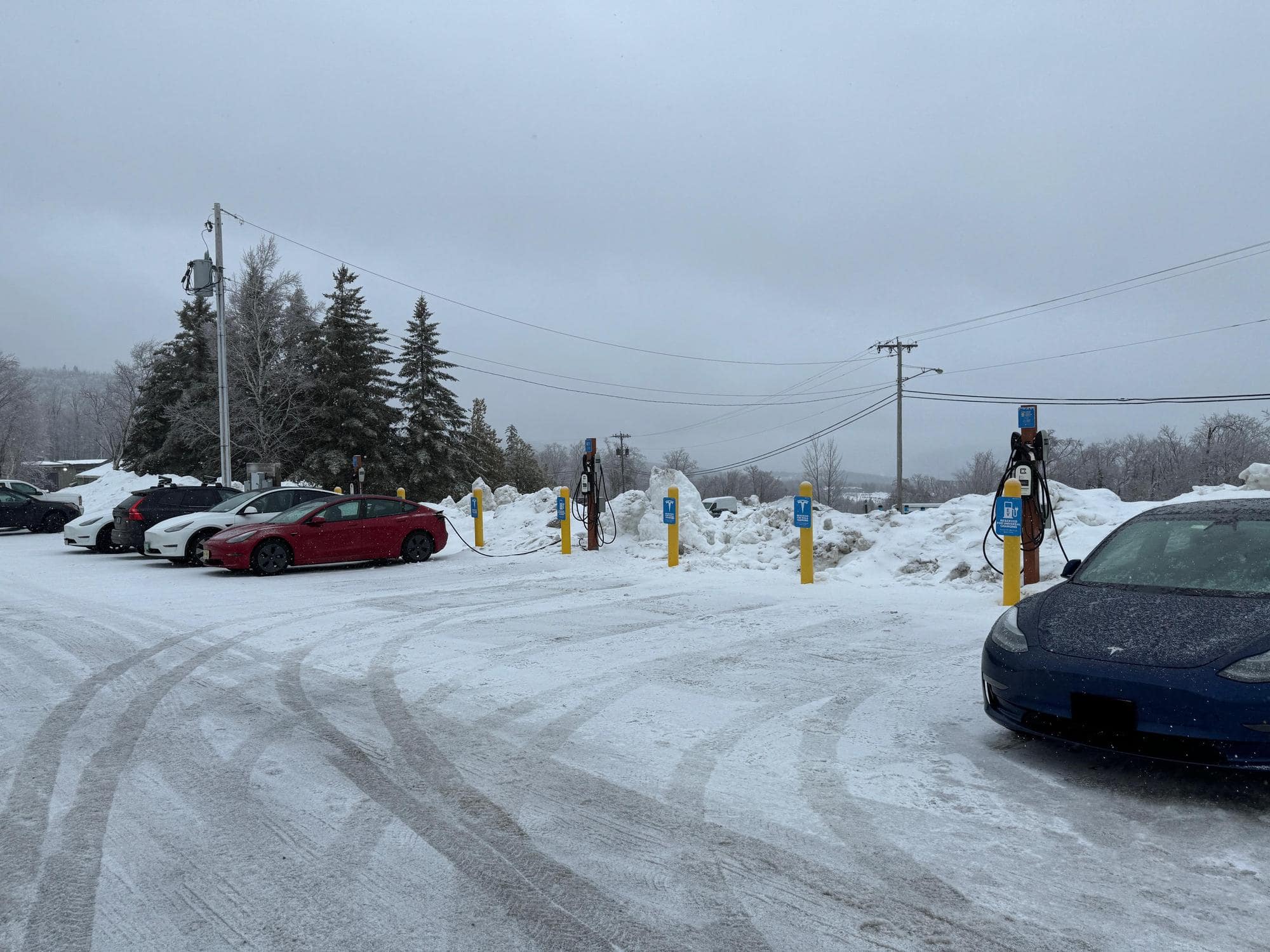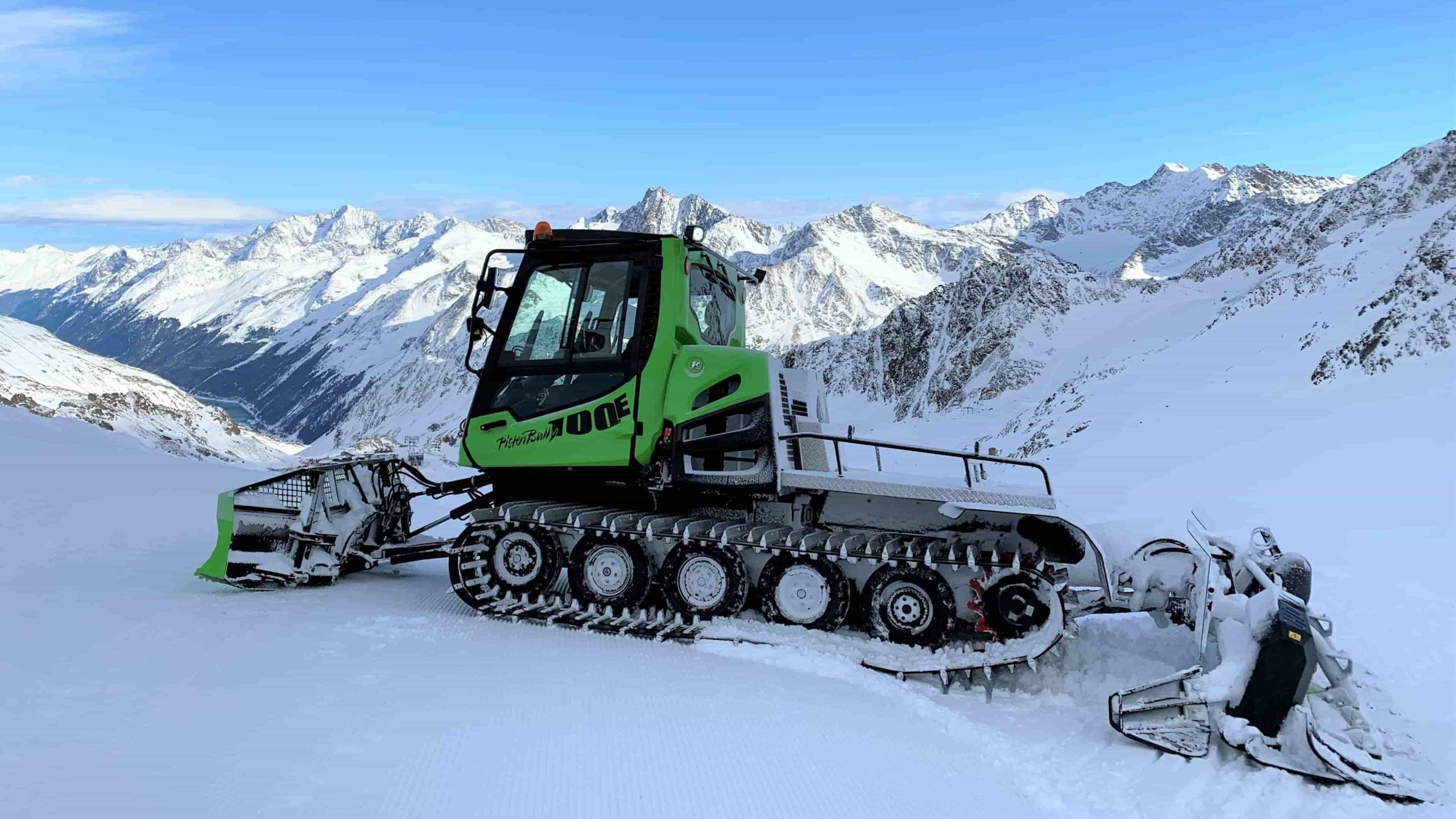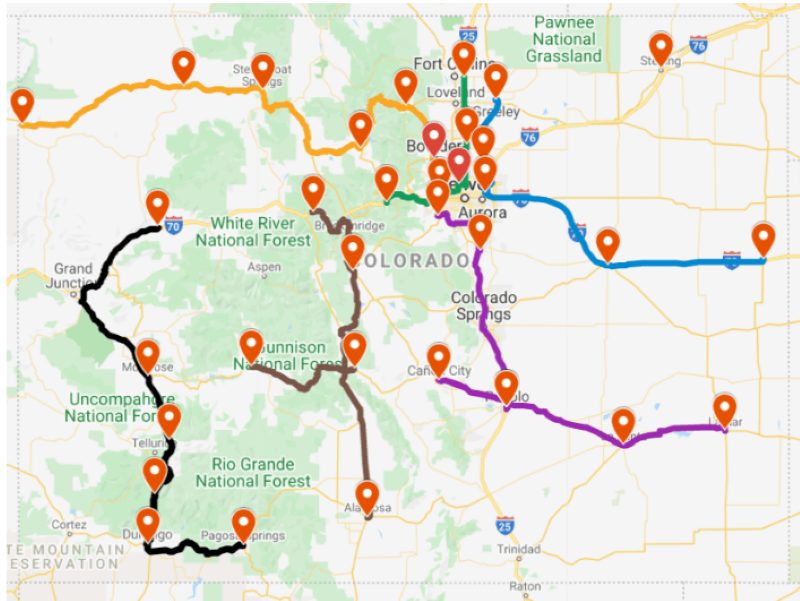
As the ski industry scrambles to remain sustainable and minimize impacts on the already declining state of our environment, many companies have implemented electric vehicles in their resorts. With new emissions standards and regulations being finalized by the U.S. Environmental Protection Agency (EPA), as many as 50% of the new cars sold in 2030 will be fully electric, according to projections from the agency. The application of electric vehicles into American transportation and recreation is no groundbreaking idea. Some of the first electric vehicle charging stations at ski resorts were built over ten years ago at Palisades Tahoe in California and Stevens Pass in Washington. Rapid innovation has occurred since those first stations were opened to the public, and some fascinating developments have been implemented in fan-favorite ski areas across the country.
Recently acquired by a group of local investors, Killington-Pico, Vermont, proudly boasts the most electric vehicle charging stations at any ski resort in America. With 47 total electric chargers of both Tesla and J1772 varieties in almost every parking lot for free use, Killington-Pico is often cited as one of the most EV-friendly ski resorts in North America. Other, more remote ski areas on the East Coast, like Jay Peak in Vermont and Whiteface in New York, have also made sure to offer plentiful, free-to-use electric vehicle charging stations at their bases. The Governor of New York recently announced a $21 million grant towards EV charging stations along and north of Interstate 84, providing even more accessibility in the area.
- Related Article: Tahoe Transportation District Awarded $7.9 Million for Diesel-Electric Hybrid Buses
Wolf Creek Ski Area, located in Colorado, also leads the scene in electric vehicles and renewable energy. Despite its relatively small footprint and traffic compared to other resorts in Colorado, this ski area provides a minimal price for five charging stations in the main parking lot. Becoming fully solar-powered in 2018, Wolf Creek also works closely with local projects and agencies to minimize negative social impact and create sustainable business practices for surrounding communities. It has enacted a minimally invasive Vegetation Management Plan and is committed to the stewardship of the San Juan National Forest in which it operates. Wolf Creek Ski Area has also been a member of the EPA’s Green Power Partnership and has been certified as a 100% Green Power User every year since 2013, with the exception of 2017, when it scored 95.5%. Among numerous additional sustainable practices, one of the most impactful is using 100% biodegradable oils in heavy machinery such as snow-cats.

Speaking of heavy machinery, Taos Ski Valley, located in New Mexico, added its fleet’s first fully electric snow-cat vehicle last season. The PistenBully brand has manufactured these necessary pieces of equipment since 1969 and has successfully developed many types of sustainable innovation in its products over the past decade. Like many other resorts, Taos is committed to achieving net-zero carbon emissions by 2030. Its use of electric and hybrid vehicles in its fleet has allowed the ski area to become a leader in this regard. Taos also has six fully electric snowmobiles in its fleet, and it became the first B-corporation-certified ski area in 2017.

In 2018, the Colorado Energy Office launched the Electric Vehicle Fast-Charging Corridors infrastructure grant program. Improving EV access to areas outside of the I-70 corridor, this state program partnered with private companies and local governments to install high-speed electric vehicle charging stations at 34 locations along mountain corridors in the state. Many resorts in Colorado also tend to be very EV-friendly. Eldora Mountain Ski Resort offers 30 free-to-use, free-to-park electric vehicle charging stations and has implemented a hybrid and fully electric vehicle fleet for its shuttle program. Vail, Winter Park, Beaver Creek, and Powderhorn also offer free-to-use charging stations. Every other ski area in the state, excluding Keystone, Silverton, and Ski Cooper, has EV charging stations open to the public in its base area for a small charge per kilowatt hour.
Surprisingly, many of the California resorts are not necessarily the most EV-friendly. Although the town of Mammoth Lakes, California, recently installed 12 Tesla superchargers and three J1772 chargers at the community recreation center, there are still no public chargers at the resort, and many options are only available to hotel guests. In the Lake Tahoe region, the Alpine Meadows portion of Palisades and Homewood and Sugar Bowl do not have EV chargers open to the public. This is not to say that these resorts are inaccessible in your electric vehicle, but proper planning will be necessary to stay charged and avoid wait times while traveling. The Olympic Valley side of Palisades Tahoe does have free-to-use electric chargers and is a good place to charge, and it was the first resort in California to install them in 2013.
Going into the 2024-25 season, you can expect nationwide EV accessibility, yet some popular resorts have still not implemented charging stations directly in their public base areas. While some of the previously mentioned resorts in Tahoe and others around the country do not have direct access to charging stations in their parking lots, extensive charging networks in town and along travel corridors allow for efficient travel to and from any ski area in America. Substantial government grants and private initiatives have made this vision a reality and have expanded the horizon for the future of electric vehicles in the American ski industry.